
How Adam, on whom be peace, marvelled at the perdition of the accursed Iblís and showed vanity تعجب کردن آدم علیه السلام از ضلالت ابلیس لعین و عجب آوردن
چشم آدم بر بلیسی کو شقی ست
از حقارت و از زیافت بنگریست
The eye of Adam looked with contempt and scorn on Iblís who is damned.
خویش بینی کرد و آمد خود گزین
خنده زد بر کار ابلیس لعین
He behaved with self-conceit and became self-approving: he laughed at the plight of accursed Iblís.
بانگ بر زد غیرت حق کای صفی
تو نمیدانی ز اسرار خفی
The jealousy of God cried out (against him)—“O chosen one, thou art ignorant of the hidden mysteries (of His providence).
پوستین را باژگونه گر کند
کوه را از بیخ و از بن بر کند
If He should turn the fur inside out, He would tear up from root and bottom (even) the (firmest) mountain (of faith);
پردهی صد آدم آن دم بر درد
صد بلیس نو مسلمان آورد
At that instant He would rend the veil of (put to shame) a hundred Adams and bring (to light) a hundred Devils newly converted to Islam.”
گفت آدم توبه کردم زین نظر
این چنین گستاخ نندیشم دگر
Adam said, “I repent of this look; I will not think so disrespectfully again.”
یا غیاث المستغیثین اهدنا
لا افتخار بالعلوم و الغنی
O Help of them that call for help, lead us (aright)! There is no (cause for) pride in knowledge or riches.
لا تزغ قلبا هدیت بالکرم
و اصرف السوء الذی خط القلم
Do not let a heart stray that Thou hast guided by Thy grace, and avert the evil which the Pen has written.
بگذران از جان ما سوء القضا
وا مبر ما را ز اخوان صفا
Let the evil of Thy ordainment pass from our souls: do not cut us off from those who are sincere.
تلختر از فرقت تو هیچ نیست
بیپناهت غیر پیچا پیچ نیست
There is naught more bitter than separation from Thee: without Thy protection there is naught but perplexity.
رخت ما هم رخت ما را راه زن
جسم ما مر جان ما را جامه کن
Our (worldly) goods waylay (and plunder) our (spiritual) goods: our bodies tear the garment (of spirituality) from our souls.
دست ما چون پای ما را میخورد
بیامان تو کسی جان چون برد
Inasmuch as (the evil wrought by) our hand devours (the good towards which we move) our foot, how shall any one save his soul without Thy security?
ور برد جان زین خطرهای عظیم
برده باشد مایهی ادبار و بیم
And (even) if (unaided) he save his soul from these awful dangers, he will (only) have saved a stock of misfortune and fear,
ز آن که جان چون واصل جانان نبود
تا ابد با خویش کور است و کبود
Because the soul, when it is not united with the Beloved, is blind and blue (miserable) with itself for ever.
چون تو ندهی راه جان خود برده گیر
جان که بیتو زنده باشد مرده گیر
When Thou wilt not give him admission (to Thy presence) —even suppose he has saved his soul, regard as dead the soul that would live without Thee.
گر تو طعنه میزنی بر بندگان
مر ترا آن میرسد ای کامران
If Thou art upbraiding Thy slaves, that is suitable to Thee, O Thou whose every wish is fulfilled.
ور تو ماه و مهر را گویی جفا
ور تو قد سرو را گویی دوتا
And if Thou utter abuse of the moon and sun, and if Thou say that the (straight) stature of the cypress is (bent) double,
ور تو چرخ و عرش را خوانی حقیر
ور تو کان و بحر را گویی فقیر
And if Thou call the sky and the empyrean contemptible, and if Thou say that the mine and the sea are poor
آن به نسبت با کمال تو رواست
ملک اکمال فناها مر تراست
That is proper in reference to Thy perfection: Thine is the power of perfecting (all) mortalities,
که تو پاکی از خطر و ز نیستی
نیستان را موجد و معنیستی
For Thou art holy (and free) from danger and from non-existence: Thou art He that brings the non-existent ones into being and endows (them with existence).
آن که رویانید داند سوختن
ز آن که چون بدرید داند دوختن
He that made to grow can burn (destroy), because when He has torn, He can sew (mend).
میبسوزد هر خزان مر باغ را
باز رویاند گل صباغ را
Every autumn He burns (withers) the garden; (then) He makes to grow again the rose that dyes (the garden),
کای بسوزیده برون آ تازه شو
بار دیگر خوب و خوب آوازه شو
Saying, “O thou who wert withered, come forth, be fresh, once more be fair and of fair renown!”
چشم نرگس کور شد بازش بساخت
حلق نی ببرید و بازش خود نواخت
The eye of the narcissus became blind: He restored it; the throat of the reed was cut: He himself fostered it again (and revived it).
ما چو مصنوعیم و صانع نیستیم
جز زبون و جز که قانع نیستیم
Since we are made (by God) and are not makers, we are not (entitled to be anything) but humble and content.
ما همه نفسی و نفسی میزنیم
گر نخوانی ما همه اهرمنیم
We all are crying “nafsí nafsí” (“save my soul, save my soul!”): if Thou call us not (to Thyself), we all are Ahrimans (Devils).
ز آن ز اهرمن رهیدستیم ما
که خریدی جان ما را از عمی
(If) we have been delivered from Ahriman, (it is only) because Thou hast redeemed our souls from blindness.
تو عصا کش هر که را که زندگی است
بیعصا و بیعصا کش کور چیست
Thou art the Guide of every one that hath life: what is the blind man without staff and guide?
غیر تو هر چه خوش است و ناخوش است
آدمی سوز است و عین آتش است
Excepting Thee (alone), whatsoever is sweet or unsweet is man-destroying and the essence of fire.
هر که را آتش پناه و پشت شد
هم مجوسی گشت و هم زردشت شد
Any one to whom fire is a refuge and support becomes both a Magian and a Zoroaster.
کل شیء ما خلا الله باطل
إن فضل الله غیم هاطل
Everything except Allah is vain: verily the grace of Allah is a cloud pouring abundantly and continually.
باز گشتن به حکایت امیر المؤمنین علی کرم الله وجهه و مسامحت کردن او با خونی خویش
Returning to the story of ‘Alí may God honour his person! and how generously he behaved to his murderer
باز رو سوی علی و خونیاش
و آن کرم با خونی و افزونیاش
Go back to ‘Alí and his murderer, and the kindness he showed to the murderer, and his superiority (moral and spiritual excellence).
گفت دشمن را همیمیبینم به چشم
روز و شب بر وی ندارم هیچ خشم
He said, “Day and night I see the enemy with my eyes, (but) I have no anger against him,
ز آنکه مرگم همچو من خوش آمده ست
مرگ من در بعث چنگ اندر زده ست
Because death has become sweet as manna to me: my death has laid fast hold of resurrection.”
مرگ بیمرگی بود ما را حلال
برگ بیبرگی بود ما را نوال
The death of deathlessness is lawful to us, the provision of unprovidedness is a bounty to us.
ظاهرش مرگ و به باطن زندگی
ظاهرش ابتر نهان پایندگی
’Tis death outwardly but life inwardly: apparently ’tis a cutting-off (decease), in secret (in reality) ’tis permanence (life without end).
در رحم زادن جنین را رفتن است
در جهان او را ز نو بشکفتن است
To the embryo in the womb birth is a going (to another state of existence): in the world it (the embryo) blossoms anew.
چون مرا سوی اجل عشق و هواست
نهی لا تلقوا بأيدیکم مراست
“Since I have intense love and longing for death, the prohibition do not cast yourselves (into destruction) is (meant) for me,
ز آنکه نهی از دانهی شیرین بود
تلخ را خود نهی حاجت کی شود
Because (only) the sweet berry is prohibited; (for) how should it become necessary to prohibit the sour one?
دانهای که تلخ باشد مغز و پوست
تلخی و مکروهیاش خود نهی اوست
The berry that has a sour kernel and rind its very sourness and disagreeableness are (serve as) a prohibition of it.
دانهی مردن مرا شیرین شده ست
بل هم احیاء پی من آمده ست
To me the berry of dying has become sweet: (the text) nay, they are living has come (from God) on my account.
اقتلونی یا ثقاتی لائما
إن فی قتلی حیاتی دایما
Slay me, my trusty friends, slay me, vile as I am: verily, in my being slain is my life for evermore.
إن فی موتی حیاتی یا فتی
کم أفارق موطنی حتی متی
Verily, in my death is my life, O youth how long shall I be parted from my home? Until when?
فرقتی لو لم تکن فی ذا السکون
لم یقل إنا إليه راجعون
If there were not in my staying (in this world) my separation (from God), He would not have said, ‘Verily, we are returning to Him.’”
راجع آن باشد که باز آید به شهر
سوی وحدت آید از تفریق دهر
The returning one is he that comes back to his (native) city, and (fleeing) from the separation (plurality) of Time approaches the Unity.
Special Offers
by: Reza about (category: Masnavi)


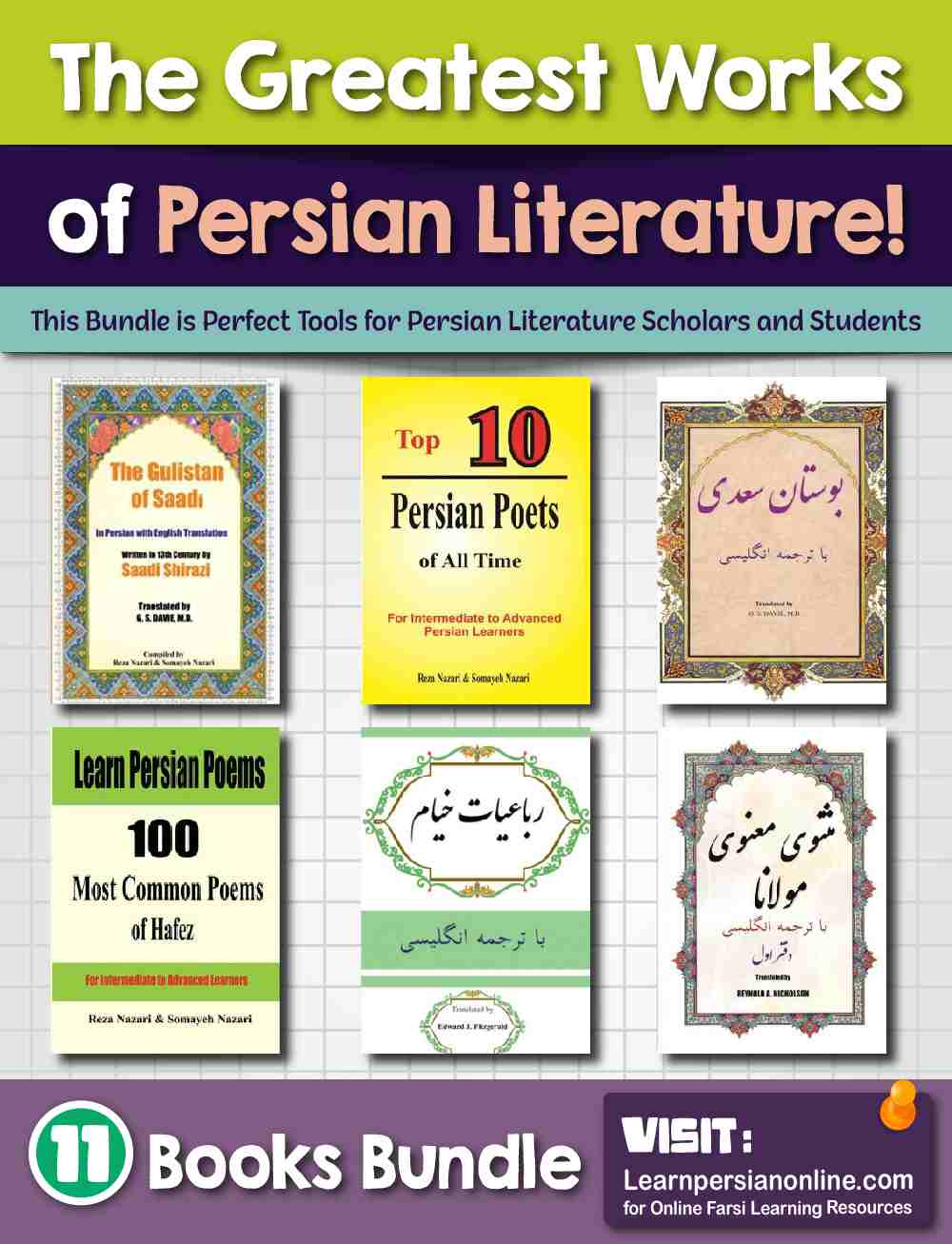
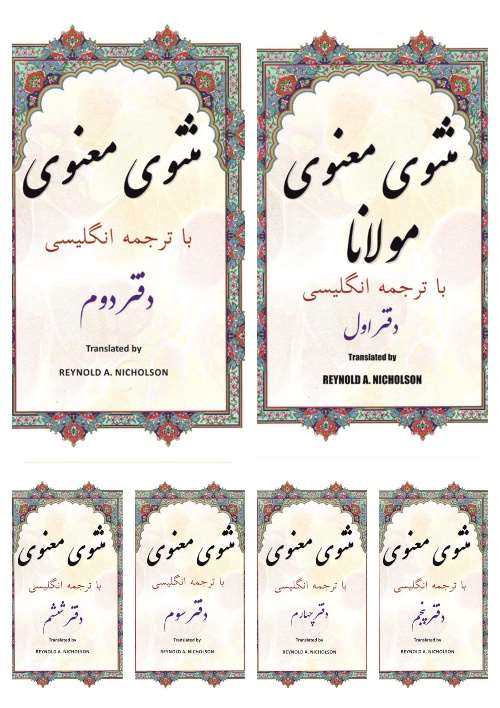
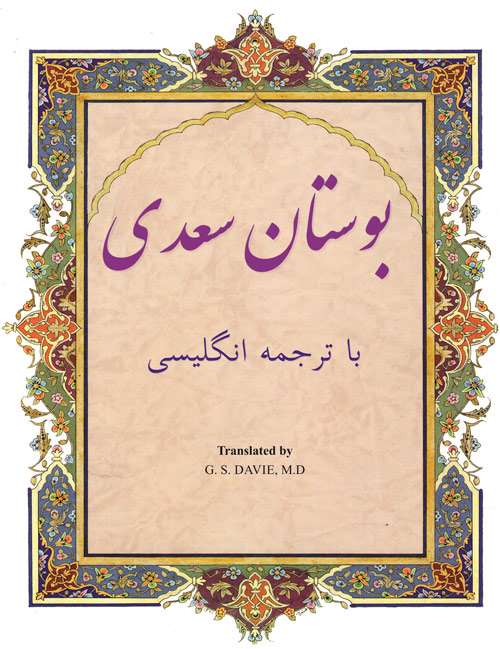
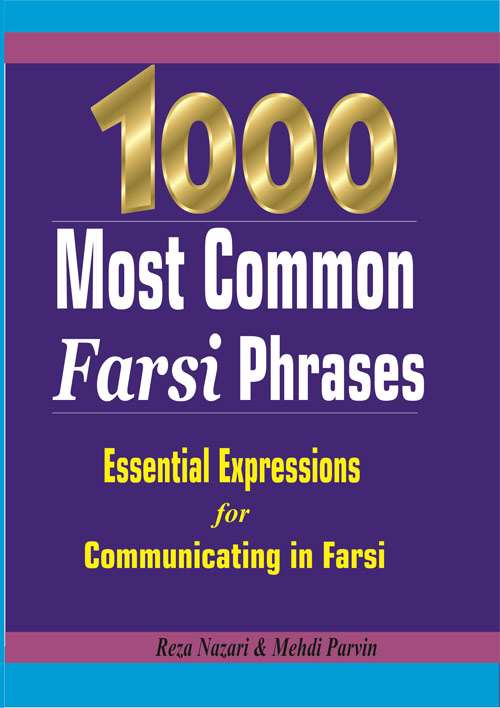
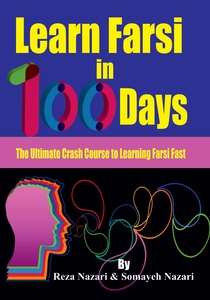






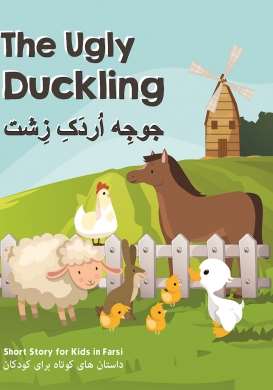
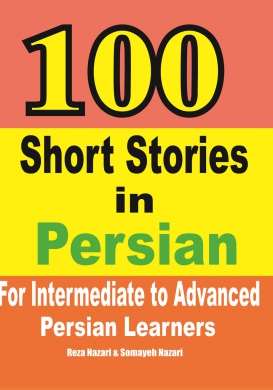
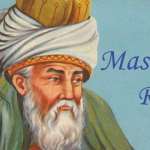
What people say about "How Adam, on whom be peace"?
No one replied yet.